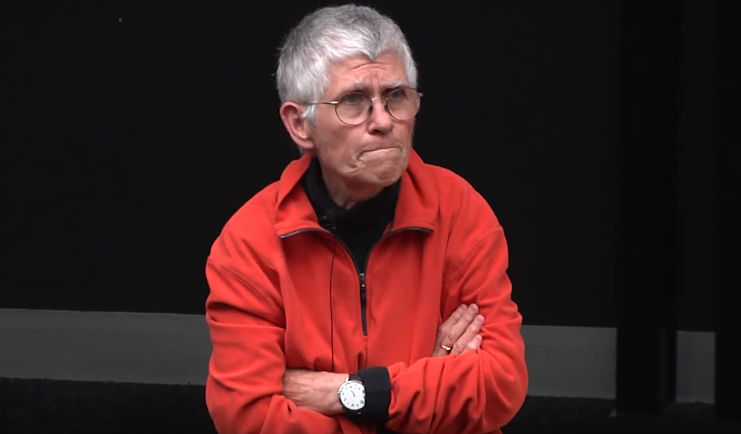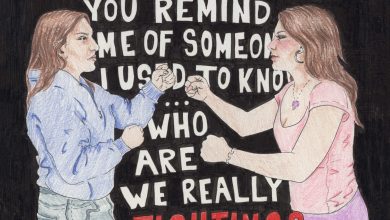Feminist Theorist Thursdays: Cynthia Enloe

Image by ArtsAucklandUni via Youtube / CC BY 2.0
Gender is an integral part of warfare. War was, and arguably still is, the most exemplary iteration of masculinity in society. Men have historically fought to protect their property — ostensibly, women. Naturally, winning a war then meant violation of the other side’s property, including its women. Thus, rape is endemic to war. And yet, gender is rarely considered in the realm of international politics.
Cynthia Enloe was the woman who would change that, or at least make valiant attempts to. Many feminist critics, including Susan Brownmiller in her 1975 polemic “Against Our Will,” have bemoaned the presence of toxic masculinity in international relations, mocking “big boys and their guns,” but Cynthia Enloe was one of the first to delve into this topic with an academic perspective. Her book “Bananas, Beaches, and Bases” was lauded as “the most significant book in contemporary feminist international politics” by Marysia Zalewski. In the text, Enloe provides substantive analysis of sex tourism, militarism, diplomacy, and domestic labour, all in the context of global politics.
In academia and literature surrounding global politics, women are typically out of sight, out of mind. Women are rarely actors in international politics; instead they are impacted by the decisions of their male counterparts. In her work, Enloe explores this power discrepancy and the effect that it has on women, presenting and assessing a diverse range of feminine roles in society. She takes personal stories and makes them political, ultimately arguing that the personal — usually associated with women, and thus dismissed from the realm of politics — is inextricably intertwined into international relations and should not be left undiscussed.
Although Enloe’s work can be seen as somewhat outdated (“Bananas, Beaches, and Bases” was published in 1989), it is still vital in the context of our modern political climate. Feminism constantly seeks to shift, reform, and improve, and is still commonly misunderstood. As Enloe told NPR in a 2012 interview, feminism is not only about justice for women, but also the concept of “deep justice,” changing behaviors of “both women and men, and really changing our notions of what justice looks like.”
In the same interview, Enloe spoke of her own changing feminism: “That’s been the biggest revelation to me in becoming a feminist — to take all kinds of women seriously so I can understand the world better.” Enloe urges a model of empathy in global politics — that in understanding different sorts of women and people, one understands the world.
Cynthia Enloe’s book was and is part of the movement to open political spaces to women, shifting and molding the exclusionary structure of international relations. This remains pertinent, as the United States appears to be sliding backwards, especially in terms of diverse representation in politics. Under Trump’s administration, there are fewer women and people of color than in every presidential cabinet since the ‘80s. In order to achieve the empathy-driven model, Enloe calls for representation of diverse voices in high politics.
Enloe’s work is important in another realm: in the wide waves of resistance that have emerged as a result of Trump’s presidency. In addition to her discussion of women’s roles in times of distress, Enloe also explores their place in peace movements. She discusses the troubling dilemma of criticizing peace groups, and the tendency of well-intentioned organizations such as Amnesty International, an organization dedicated to protecting human rights, to exoticize non-western women. She argues that although these organizations are nobly minded, they must act intentionally to avoid images that might overly sexualize or exoticize the women they serve. For instance, organizations seem to have developed a fetish for the image of a woman with only her eyes showing, the rest of her face covered by swaths of fabric. According to Enloe, the repetition of this facial image exoticizes and ultimately commodifies Middle Eastern women, which in turn tarnishes the progress that is being attempted.
Enloe asks hard questions about other nobly minded efforts such as the North Atlantic Treaty Organization (NATO)’s presence in Afghanistan and reminds us of the danger of false heroism. She states, “I think any progress that’s been achieved for women in Afghanistan has been due to the guts and bravery and intelligence of Afghan women themselves.” Enloe encourages us to listen to Afghan women of all backgrounds, identity, and experience: to consider their voices, and to respect the large portion of resistance they have staged themselves.
Critics of Enloe’s theory say that she is overly anecdotal in her approach and that she lacks “serious theory” and empiricism. Ironically, this is the very idea that Enloe is attempting to deconstruct; “serious” political theory need not exclude the personal. Instead, it should draw from anecdote as a source of information and inclusion. Critics of Enloe thus only reinforce her point: The personal is international politics. Individual stories are a legitimate form of truth and representation. Enloe’s theory is not lacking empirical fact, but bolstered by heart.
In modern society, it is critical to continue questioning our belief systems, and Enloe encourages us all to do exactly that. However, more importantly, Enloe encourages us to listen. Listen to voices of our sisters, our brothers, our enemies. In the times to come, we must create a complex worldview based on a wide array of voices. Let’s get personal.




